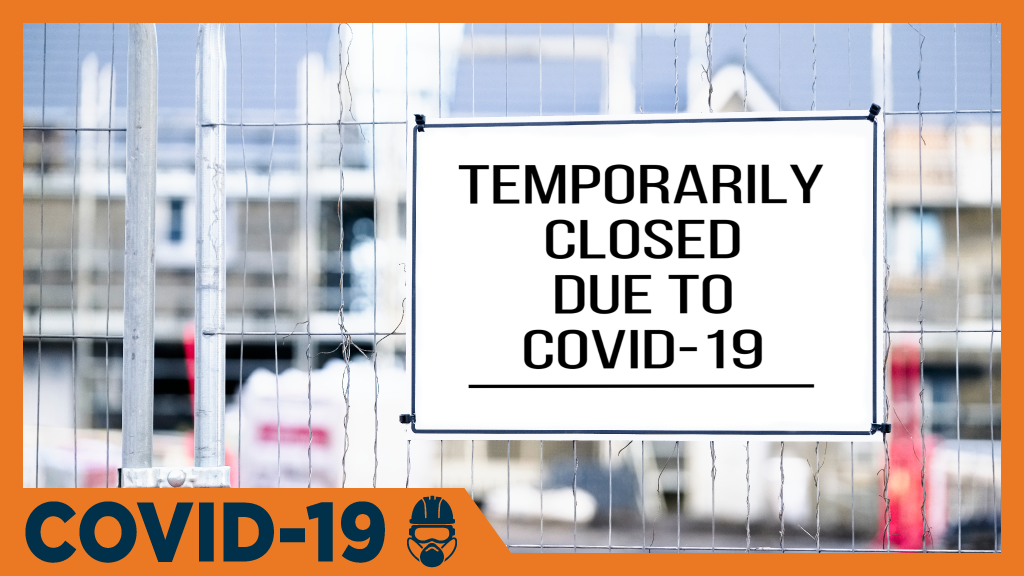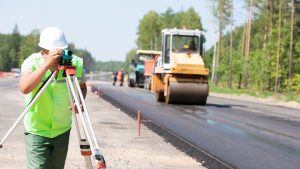The Manitoba Government and General Employees’ Union (MGEU) is calling on the province to look at its inspection and enforcement practices following the death of a 39-year-old construction worker in a trench collapse on May 6.
The union has been critical of the government’s decision to alter is enforcement strategy in the past several months due to the COVID-19 pandemic, said Blaine Duncan, the MGEU’s workplace safety and health specialist.
“We have no information to suggest that the lack of inspections caused this recent tragedy,” Duncan clarified. “Our point in raising these concerns now is that this recent tragedy simply underscores the importance of Workplace Safety and Health. Effective enforcement of safety rules is a critical part of ensuring safe and healthy workplaces. Field inspections are a critical enforcement tool.”
Duncan explained the union’s members and some government officials indicate that inspections and enforcement during the COVID-19 pandemic has dropped off.
“The activities of the Workplace Safety and Health (WSH) Branch were significantly modified at the outset of the pandemic,” he said. “Once the pandemic hit Manitoba, government directed Safety and Health officers not to do in-person, onsite inspections except in high-priority investigations. In early April, a handful of inspectors were given the go-ahead to do drive-by views of construction sites with instructions to engage only if contraventions were visible from a distance.”
According to Duncan, the past two months have seen less than half the normal number of officers assigned to field duties, and those on field duties were only spending half their workdays in the field.
The union believes that instead of developing work procedures to conduct in-person, onsite inspections safely, the government simply cut back on these inspections.
“We think that’s the wrong response and that it will place workers at risk,” said Duncan.
The province’s records show that in April WSH received 987 calls and emails, actioned 162 complaints, 36 incidents and 37 consultations, and initiated 182 additional proactive assignments. This enforcement work resulted in 281 inspections, 139 improvement orders and 23 stop work orders.
A provincial spokesperson told the Journal of Commerce that WSH limited proactive inspections during the initial stages of the COVID-19 outbreak to prevent community spread, redirect resources to complaints, queries and refusals and in recognition that business operations were decreased.
“Complaints, incidents and work refusals were prioritized alongside the development of guidance materials to ensure appropriate systems were in place in workplaces,” said the spokesperson. “This was consistent with the approach taken in other jurisdictions.”
The province added that as business reopens, WSH is resuming its previous proactive inspection strategy and is collaborating with Public Health to ensure workplaces at high-risk for COVID-19 exposure are covered.
The spokesperson noted that WSH utilizes data-driven enforcement strategies to target proactive inspections for maximum effectiveness.
Duncan said the union has requested the data on how many in-person, onsite inspections were conducted and how many improvement orders and stop-work orders were issued in the past two months, year over year, to compare.
The union has sent a letter to the minister responsible for the WSH branch highlighting the need to support the safety enforcement with appropriate financial and staffing resources. The union is also calling for an investigation by the chief prevention officer into the scaling back of in-person onsite investigations.
“With the recent partial reopening of the economy and recent provincial funding for shovel-ready construction projects, it is more important than ever for safety and health officers to be present in Manitoba workplaces,” said Duncan. “It is simply unacceptable that safe work procedures for the people responsible for enforcing safe work rules were not implemented until seven weeks after COVID-19 arrived in Manitoba.”










Recent Comments
comments for this post are closed